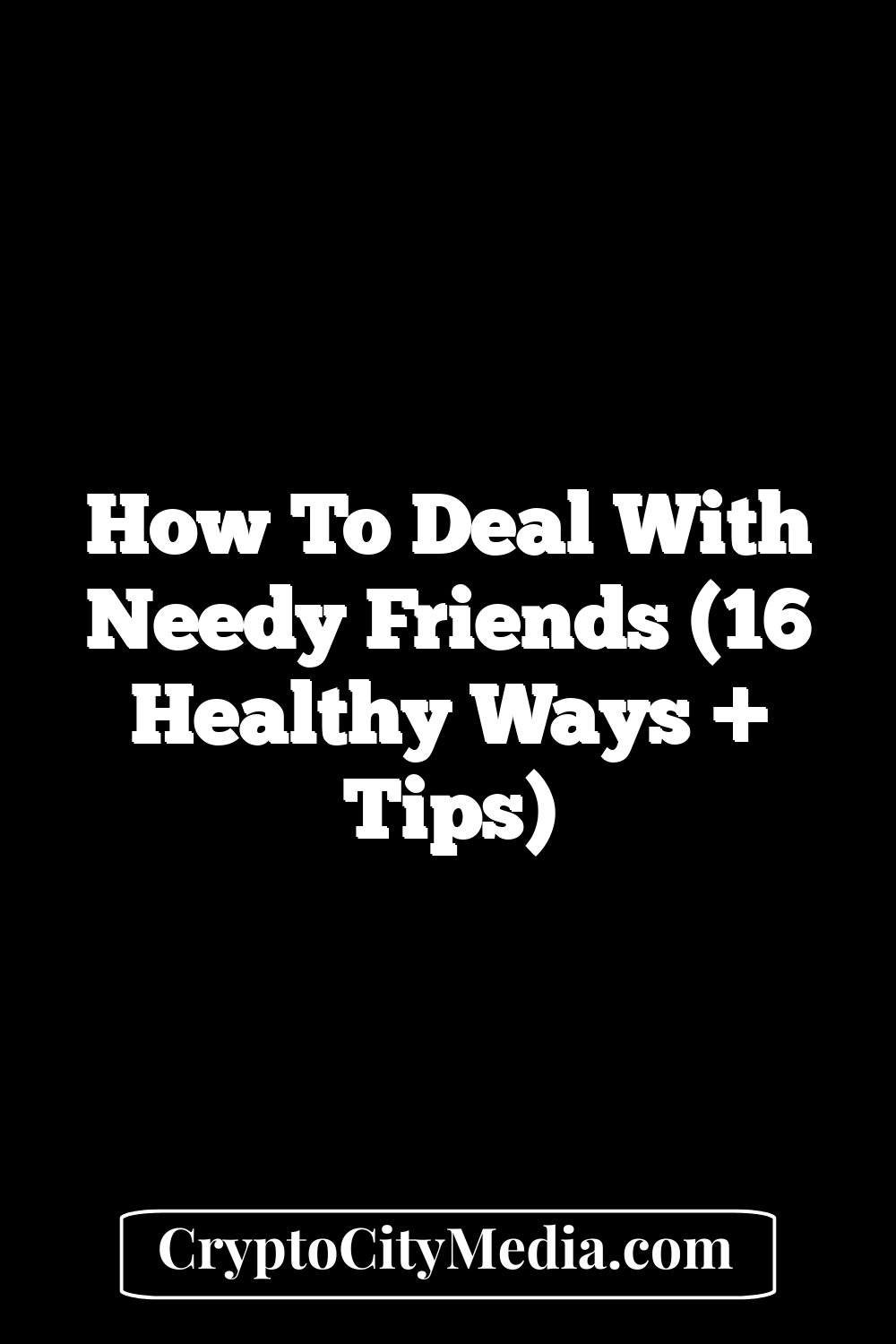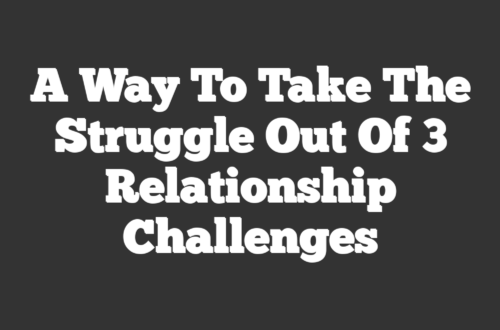
Having friends is a wonderful part of life, but when one becomes too reliant on you, things can get sticky. Maybe you feel caught between being a good friend and feeling a bit used.
Finding a way to handle this kind of friendship requires patience and a few smart moves. Sometimes, it’s not about giving more but teaching them to ask for less.
So, what do you do? How do you balance their needs with your own without feeling you’re over your head? In this guide, we’ll explore steps to flip the script on your demanding friendships. Let’s dive right into it!
Communicate Openly and Honestly
Sometimes, the idea of telling a friend they’re becoming a bit much can make you squirm, right? But here’s the thing: being open and honest is the kindest thing you can do, not only for yourself but for your friend, too.
It’s like removing a splinter—it might sting at first, but it’s better than letting it fester. Remember, it’s not about accusing them of being needy but sharing how their behavior affects you.
Imagine how much better you’ll feel once you’ve cleared the air. Sure, it might take a brave heart to start that chat, but I think you’ll find that being transparent can strengthen your friendship in ways you didn’t expect.
Set Clear Boundaries
Boundaries are the unsung heroes in friendships—think of them as invisible fences that keep everything nice and orderly in your personal space.
If a friend is constantly asking for your attention or popping into your space uninvited, it’s totally okay to be upfront about what you’re cool with and what you’re not.
What does setting a boundary look like in real life? Well, it’s all about clarity. Maybe it’s making it known that your weekends are your sacred solo recharge time. You could say, “I love our get-togethers, but I need to keep my weekends free for family time and personal errands.” See, gentle but clear.
The trick is not to wait until you’re at your wit’s end. Do it early on, and stick to your guns. Sure, your friend might need a little time to adjust, but your true-blue pals will get it and respect your needs.
And hey, that space might just make your time together even better. You’re creating a healthy environment for both of you—and that’s what real friendship is all about, isn’t it?
Practice Saying “No” Politely
Okay, I get it. The word “no” can feel like you’re pushing someone overboard with no life jacket. But think of “no” as not saying yes to stress. It’s like being the captain of your ship—you get to decide who and what comes aboard.
Now, here’s how to make “no” sound less like a door slam and more like a gentle breeze:
- Show gratitude: “Thanks for considering me for your project, but…”
- Give a brief reason: “I’ve got a lot on my plate right now.”
- Offer a rain check if you mean it: “Can we possibly look at this next month?”
Doing this lets your friend down easily, and they’ll appreciate your honesty in the long run. The more you practice, the easier it gets.
Reflect on Your Feelings
When you’re dealing with a friend who seems to need a lot from you, it’s like carrying an extra backpack on a hike. It can weigh you down. This is where some good old reflection steps in. Think of it as checking your emotional baggage.
Take a quiet moment to ask yourself:
- How does my friend’s neediness make me feel?
- Do I feel drained after our interactions?
- What’s driving my reaction to their behavior?
It’s like being your own emotional detective. When you pinpoint what’s bugging you, things are clearer.
Understand Your Limits
Everyone’s got their breaking point, like that last straw that makes the camel sit down and say, “Nope, I’m done.” It’s crucial to recognize how much you can handle before you reach that point.
Here’s a tip: think about times when you’ve felt overwhelmed. What was happening? How much could you deal with before it felt like too much?
Once you know your limits, it’s like setting an alarm for when it’s time to step back. And that’s not being selfish. It’s about being self-aware. Remember, you’re no good to your needy friend or yourself if you’re burned out.
Offer Help in Moderation
Ever heard the saying, “Give them an inch, and they’ll take a mile“? That can happen with friends who rely on you a bit too much.
It’s okay to be there for them, but think of your help as a sprinkle rather than the whole seasoning bottle. Offer support, but don’t let it become an all-you-can-eat buffet.
Here’s the game plan:
- Decide how much help is reasonable for you without feeling drained.
- Stick to what you can reasonably offer—maybe a chat once a week rather than daily check-ins.
- If they ask for more, gently direct them back to the level of help you’re comfortable with.
Remember, moderation is key. Like a balanced diet for your social life, it keeps you and your friendships healthy.
Identify the Signs of Neediness
Isn’t it true that sometimes we’re the last to see what’s right under our noses? That’s why it’s important to recognize the “help-me-please” flags that our needy friends might be waving.
It’s not about playing the blame game but about seeing the patterns. Knowing these signs can help you be more understanding and proactive.
Watch for:
- Never-ending calls or texts that expect an immediate response.
- An unwillingness to make decisions without your input.
- Your friend being upset if you have other plans or can’t provide help right away.
Awareness of these signs helps you better understand your friend’s needs, and that’s half the battle won. The next step? Addressing the issue without making them feel like they’re being put on the spot.
Encourage Independence
You know the thrill of doing something on your own for the first time? Like riding a bike without stabilizers or making a mean pasta dish without a recipe? That’s the feeling you want to encourage in your needy friend. Urging them to make their own decisions isn’t just good for them; it gives you a break, too.
For example, if your friend hesitates about attending a social event alone, you might say, “I think you’ve got this. You’re great at conversations, and I won’t be far if you really need me. Why not give it a shot?”
It’s about supporting their solo ventures and celebrating their small victories. By believing in their capabilities, you’ll help them gain the confidence to stand on their own two feet.
Be Empathetic but Firm
When a friend leans on you a little too much, it’s essential to wear your empathy like a comfy sweater—it keeps you warm but doesn’t suffocate you. Being empathetic means you get where they’re coming from, but being firm means you don’t get dragged into the emotional undertow.
Here’s how you walk that fine line:
- Listen to their concerns genuinely, nod, and show you understand.
- Then, gently remind them of your previous talks about boundaries and self-care.
- And, when needed, draw on an example to illustrate the importance of self-sufficiency for both of you.
Organize Group Activities
Switching up the usual one-on-one hangouts to group activities can be like adding a little spice to a tried-and-tested recipe—it just makes everything more interesting. Plus, it subtly reduces the pressure on you to fill all the spaces in your friend’s social calendar.
Consider these scenarios:
- Host a movie night and invite friends for a fun, relaxed evening.
- Plan a group outing to a local event where everyone can mingle and enjoy.
- Start a book club or hobby group with mutual friends to diversify your friend’s support system.
You’re essentially widening their social web by introducing your friend to new faces and potential pals. It’s like teaching them to fish socially so they won’t need to come to you for every meal, metaphorically speaking.
Avoid Reinforcing Needy Behavior
It’s human nature to respond to our friends when they need us, but when we notice a pattern of neediness, we may inadvertently reinforce this behavior. It’s like giving a stray cat a bowl of milk, and it comes back to your door every day. Being aware of this cycle is key.
Here’s how to avoid reinforcing needy behavior:
- Respond to their messages on your own time, not immediately out of habit.
- Give applause for their solo efforts, no matter how minor they seem.
- Resist the urge to fill in the silence if they don’t have weekend plans—let them feel the space.
Reinforce Positive Interactions
When you water the plants you want to grow, you’re naturally guiding the growth. So, every time your friend shows a hint of independence or contributes positively to your interactions, it’s worth acknowledging.
Imagine you and your friend are out for coffee, and the conversation flows comfortably without them relying too much on your input.
You could say something like, “I loved our chat today. It felt really balanced, and I think we both got to share and learn from each other.” This sort of feedback acts as sunlight to those seeds of positivity.
Reinforcement isn’t just about praise; it’s about encouraging the behavior that makes your times together feel good for both of you. When you put the spotlight on the moments that uplift the friendship, you’re sending a message about what type of interactions you value.
Address Changes in the Friendship
Friendships evolve—it’s natural, like seasons changing. When you notice shifts in dynamics, especially due to neediness, it’s important to address them thoughtfully. Not with the intention to blame but to understand each other better and adjust accordingly.
Here’s how you might approach this:
- Discuss your observations and feelings with care. Use ‘I’ statements to keep things neutral.
- Explore together how your friendship can adapt to these changes, seeking a harmonious path forward.
In addressing these changes, you reaffirm the value of the friendship while adapting to new dynamics.
Discuss Expectations in the Friendship
Navigating a friendship with a needy pal can sometimes feel like you’re both reading different maps. That’s why it’s essential to sit down and have a heart-to-heart about what each of you expects from the friendship. It’s not about setting demands but more like aligning your compasses so you’re both heading in the same direction.
Kick off the conversation with something like, “Hey, I’ve been thinking about how we can improve our friendship. What do you think makes a great friendship?”
From there, dive into what you both value—quality time, support, space, you name it. And it’s not a one-off chat. Keep the dialogue open because expectations can change, like our taste in music or fashion.
Regular check-in keeps things fresh and relevant and ensures that no one is feeling overwhelmed or taken for granted. It’s all about crafting a friendship that brings out the best in both of you.
Seek Mutual Respect in the Friendship
At the heart of every solid friendship lies a strong pulse of mutual respect. It’s the glue that keeps the good times rolling and the tough times bearable. Seeking mutual respect is about valuing each other’s time, space, and individuality.
Consider respect as the currency in your friendship bank—you want to keep that balance healthy. Here’s how:
- Show appreciation for each other’s perspectives, even when they differ from your own.
- Recognize and celebrate each other’s achievements and encourage personal growth.
- Step back when your friend needs space and expect the same understanding from them.
Know When to Seek Outside Support
There’s a point in some friendships where you realize you’ve done all you can, and the situation remains the same. It’s like when you’re trying to solve a puzzle, and you just can’t find that missing piece—sometimes, you need someone else to take a look.
When you’ve reached this stage, consider these options:
- Encourage your friend to talk to a professional who can support them.
- Look into support groups that relate to their situation—it could be a game-changer.
- Don’t forget to take care of your emotional well-being too. It might help to talk to someone about the stress you’re experiencing.
Knowing when to seek outside help is not giving up on a friend; it’s about getting the best help for both of you. It’s like extra support for a tough battle.
Frequently Asked Questions
What if my friend reacts negatively when I set boundaries?
It’s possible your friend might initially respond with disappointment or confusion. Stay patient and reiterate your need for boundaries with kindness.
Over time, your friend should begin to respect your limits. If they continue to push against your boundaries, it may be necessary to reassess the friendship.
Should I end a friendship if my needy friend doesn’t respect my boundaries?
Ending a friendship is a big step and should be a last resort. Before making that decision, try having an open conversation about how their actions impact your relationship.
Suggest professional help if needed. If you’ve exhausted all options and your well-being is still being compromised, it might be time to reconsider the friendship.
How often should I check in with my needy friend to maintain our friendship while respecting my boundaries?
This depends on what you’re comfortable with and your schedule. Set a frequency that feels manageable for you—whether that’s once a week or a couple of times a month. Communicate this to your friend and stick to that routine as consistently as possible.
Final Thoughts
Navigating the waters with a needy friend can be challenging, but with the right approach, your friendship can grow rather than become a burden.
Remember, it’s about balance—supporting your friend while also taking care of your own needs. It’s about finding harmony in your relationships so you and your friend feel valued and understood.
Let these insights guide you to create a healthier and more sustainable friendship as you journey forward together without overly relying on one another.




